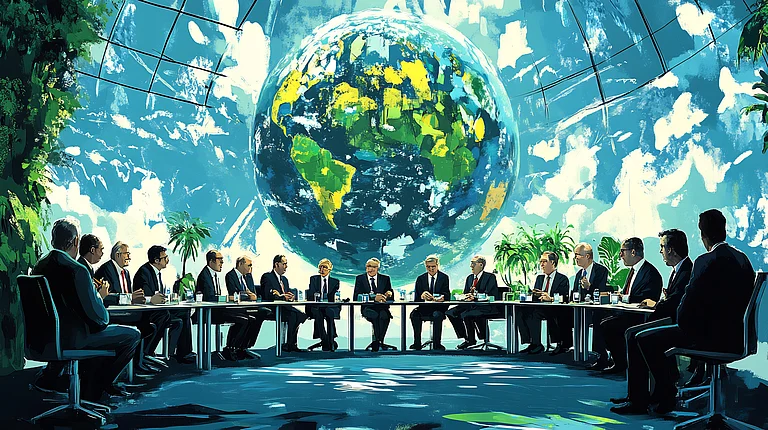Global energy systems are under immense pressure from ramification of climate change, geopolitical instability and rapid technological transformation. According to the Fostering Effective Energy Transition 2025 report published June 18, 2025 by the World Economic Forum (WEF) factors like artificial intelligence (AI), electrification and extreme heat unfolded record energy demand in 2024. This indicated deep vulnerabilities in global energy supply chains and questioned world’s ability to meet its climate targets.
According to International Energy Agency (IEA), total energy-related carbon dioxide emissions increased by 0.8% in 2024, reaching an all-time high of 37.8 billion tonnes.
This rise in emissions appears contradictory when compared to the growing investment in the low-carbon energy transition worldwide, which rose by 11% to hit a record $2.1 trillion in 2024, according to Energy Transition Investment Trends 2025, an annual report released by BloombergNEF (BNEF).
Even though the world is moving towards electrified transport, renewable energy and power grids, the on-ground impact still fails to outpace the global demand to date.
The Energy Transition Index (ETI) for 2025 revealed a modest 1.1 per cent year-on-year increase in global scores — more than twice the average pace of the past three years — yet transition progress remains fragmented and uneven. Only 28 per cent of countries advanced simultaneously across energy security, equity and sustainability, with many struggling to keep pace with compounding crises.
“Momentum is rebuilding,” the report found, “but, to ensure a sustainable transition, plans must translate into tangible projects and commitments into capital.”
The IEA’s World Energy Outlook 2024 echoed similar concerns, noting that global energy systems are struggling to meet growing demand, align with climate targets and navigate geopolitical instability. The agency warned that under current policies, fossil fuel use may remain stubbornly high through 2030, threatening both climate goals and energy security. The report also underscored urgent gaps in investment for grid modernisation, clean tech manufacturing and energy access in developing economies.
































